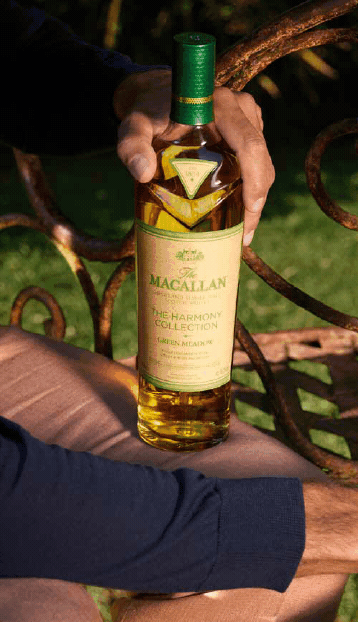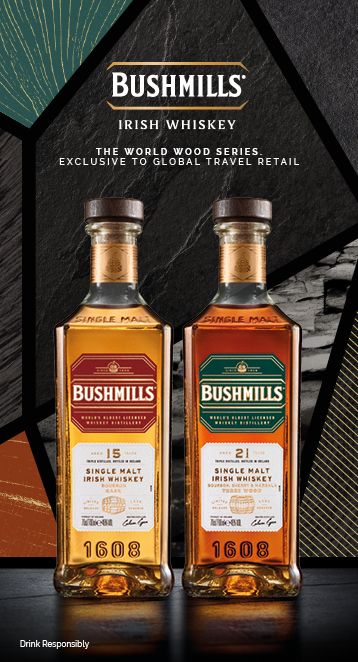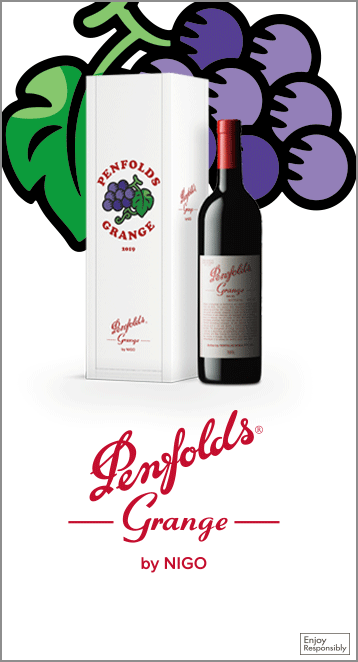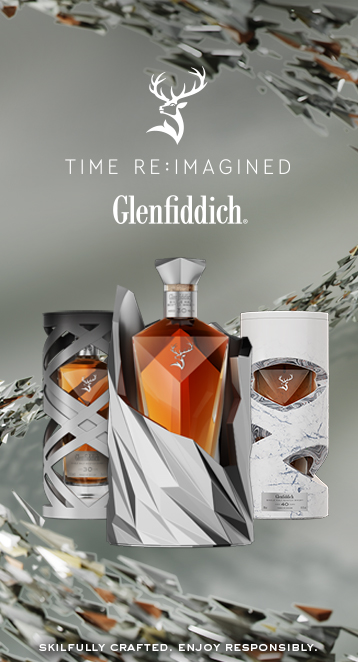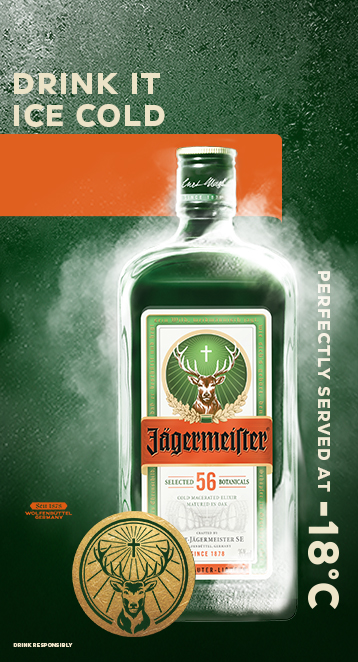Ireland has a proud tradition of whiskey bottling and blending, one that began in the 1700s, well before terms such as single pot still or single malt became the currency of whisky-making. This independently run trade allowed for a multitude of flavours and whiskey characteristics to be developed in towns up and down the country, as bonders blended whatever barrels they could lay their hands on.
Now, a new generation is seeking to build on that heritage to write a modern-day chapter in the Irish whiskey story. Two Stacks, based close to the Mourne Mountains in County Down, is one fledgling company aiming to use the revival of the Irish whiskey category to create its own niche. It takes inspiration from the past but is very much of the present.

The story began around six years ago, when three friends – Shane McCarthy, Donal McLynn and Liam Brogan – created Ireland Craft Beverages, a company that has since played the role of exporter and distributor for independent Irish drinks brands around the world.
Deciding that they wanted to produce as well as distribute, in 2020 they created Two Stacks Whiskey. The name derives from the towering twin chimney stacks of the old distillery in Dundalk, further down the Irish coast, which were so high that they once served as a navigation point for sailors plying routes up and down the Irish Sea.
The Two Stacks story is full of such symbols from the past, but it’s also rooted in a belief that Irish whiskey should be a story of diversity, creativity and personality.
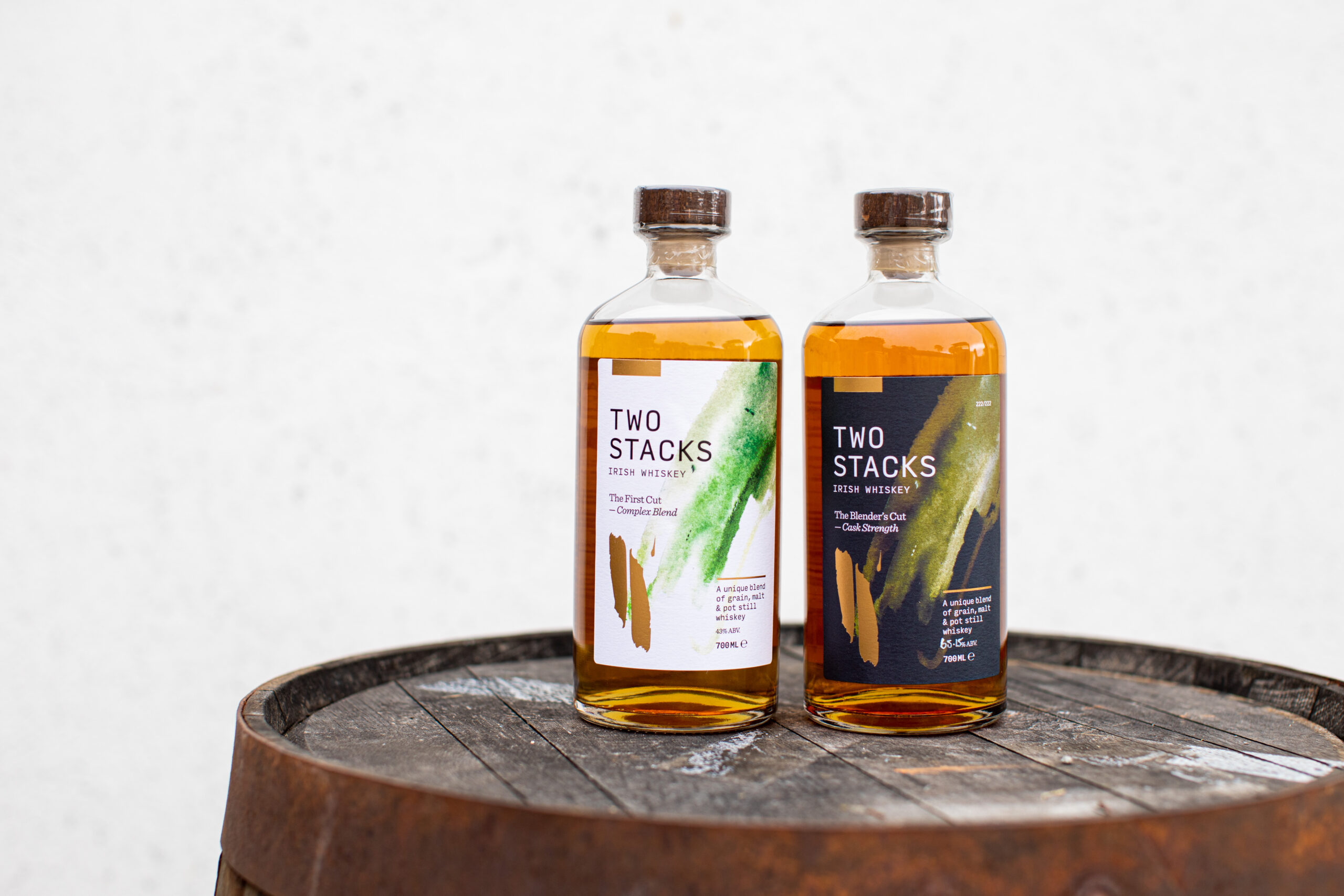
Shane McCarthy tells The Moodie Davitt Report: “A lot of people have been rejuvenating old Irish whiskey names from previous centuries. But we wanted to actually put a new stamp on this category. We are three young guys who have all lived and worked abroad and who wanted to bring a breath of fresh air to the industry back home, and that means bringing a piece of ourselves to it too. Brands are people, and to tell someone else’s brand story can be quite difficult unless you are part of the family and you have the heritage.
“We take pride in being Irish but on our travels there was also disappointment at not seeing Ireland represented widely in this category, apart from a handful of big brands. Does this limited number really represent ‘brand Ireland’ or is there more?
“Coming into the whiskey world, which some people see as becoming saturated, actually what we see is a fresh start. This is the Renaissance period. For us it’s about doing things that didn’t exist, things that would appeal to the consumer. And if people can relate directly to us, because we are the brand, then that is our inspiration.”
| Dram in a Can: A first for Irish whiskey The spirit of innovation at Two Stacks underpins its most recent product creation, which began rolling out in the US market on 1 March. The ‘Dram in a Can’ concept serves the brand’s 43% five-part blend in a 100ml can, with four-packs at a suggested retail price of US$18.99.It is described as “revolutionary” by the company. “This is new not just for Irish whiskey but for drinks,” says Co-Founder Shane McCarthy.It has created waves across the industry already, with write-ups in Forbes, Esquire and other titles plus a strong social media push. McCarthy says: “It seems a no brainer as you already have canned craft beers and wine in a can. Why not whiskey? When we did our research, we found that the miniature space hadn’t been disrupted since Power’s did their minis years ago. “It is about making the category accessible, convenient and ensuring people can try it in a compact way. The cans are light and durable and helps to get liquid to lips. We’ve had great reviews and it has created a lot of reaction, with pre-orders strong. Most importantly people have said what a great whiskey it is. “We want to have a voice that sets us apart from the majors. But marketing and having that voice is about doing, not talking. We are working really hard to evolve our product every day to bring something unique and different. That will set us apart.” |
Building on old traditions
For Two Stacks, perceptions of Irish whiskey today need to move beyond the traditional cues that are associated with the category.
McCarthy says: “Irish whiskey has a range of different flavours that pot still production brings together. It’s far more varied than many people think. You have the different mixed mash, the different grains, and Irish whiskey brings so many exciting variants from the pot still to market. There is also the big myth that only age delivers quality. You can do so much with different ingredients that have nothing to do with aging.”
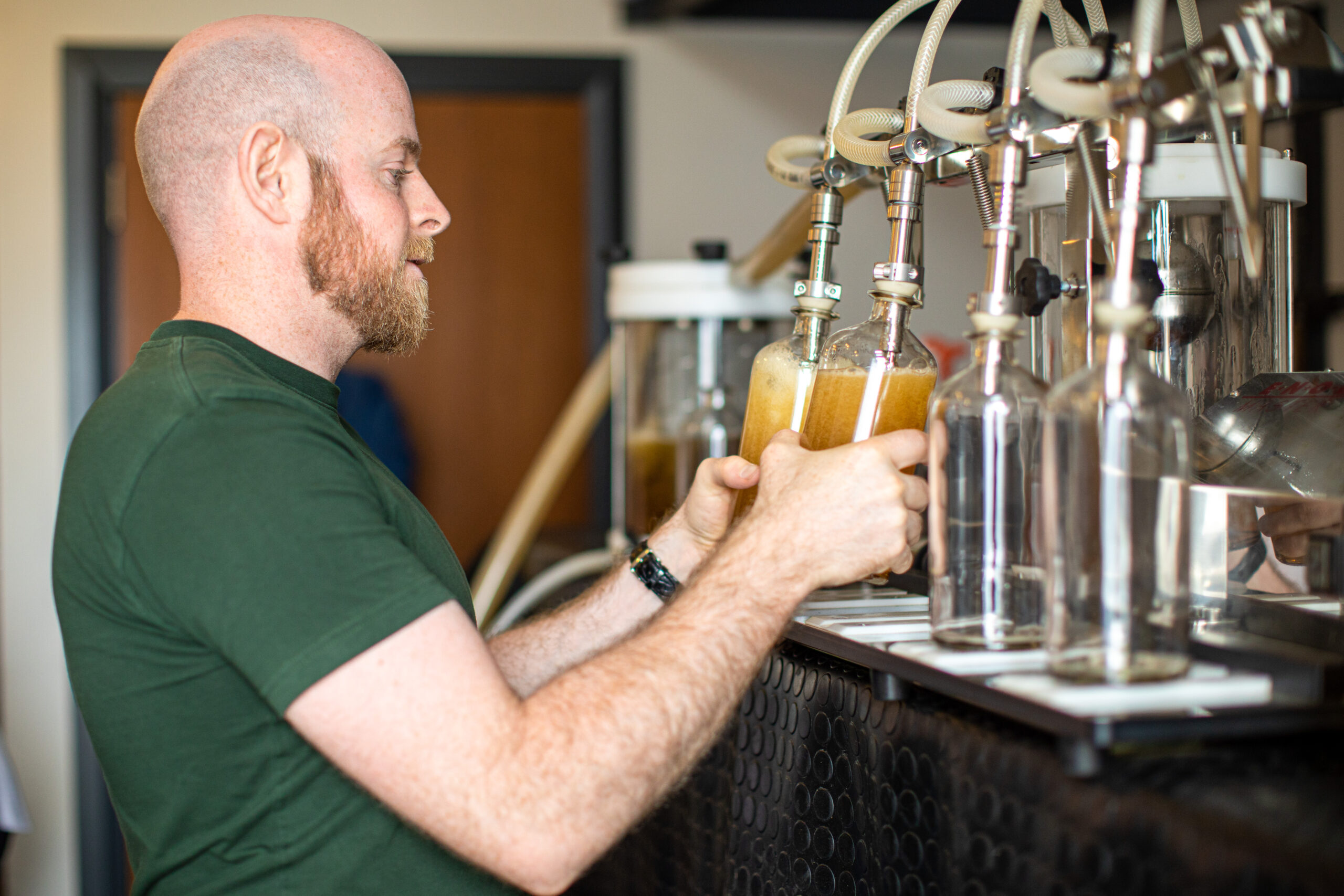
Being a blender and bottler – the company has its own Killowen distillery, Ireland’s smallest, but also works alongside other smaller independents – means that they can create many varieties and styles.
“This used to be the biggest part of Irish whiskey making,” says McCarthy. “Take Green, Red or Yellow Spot from Mitchell & Sons. These are the most famous examples but in past times distilleries would not have bottled their own product, they would have sold the casks and the retailers would have done the blending and bottling. There are others doing this now and it made sense for us to use this way of bringing the best of Ireland to the world.”
Two Stacks aims to reinforce its point of difference through its core First Cut and Blender’s Cut expressions (made using whiskey from Great Northern Distillery in Dundalk), released last year.
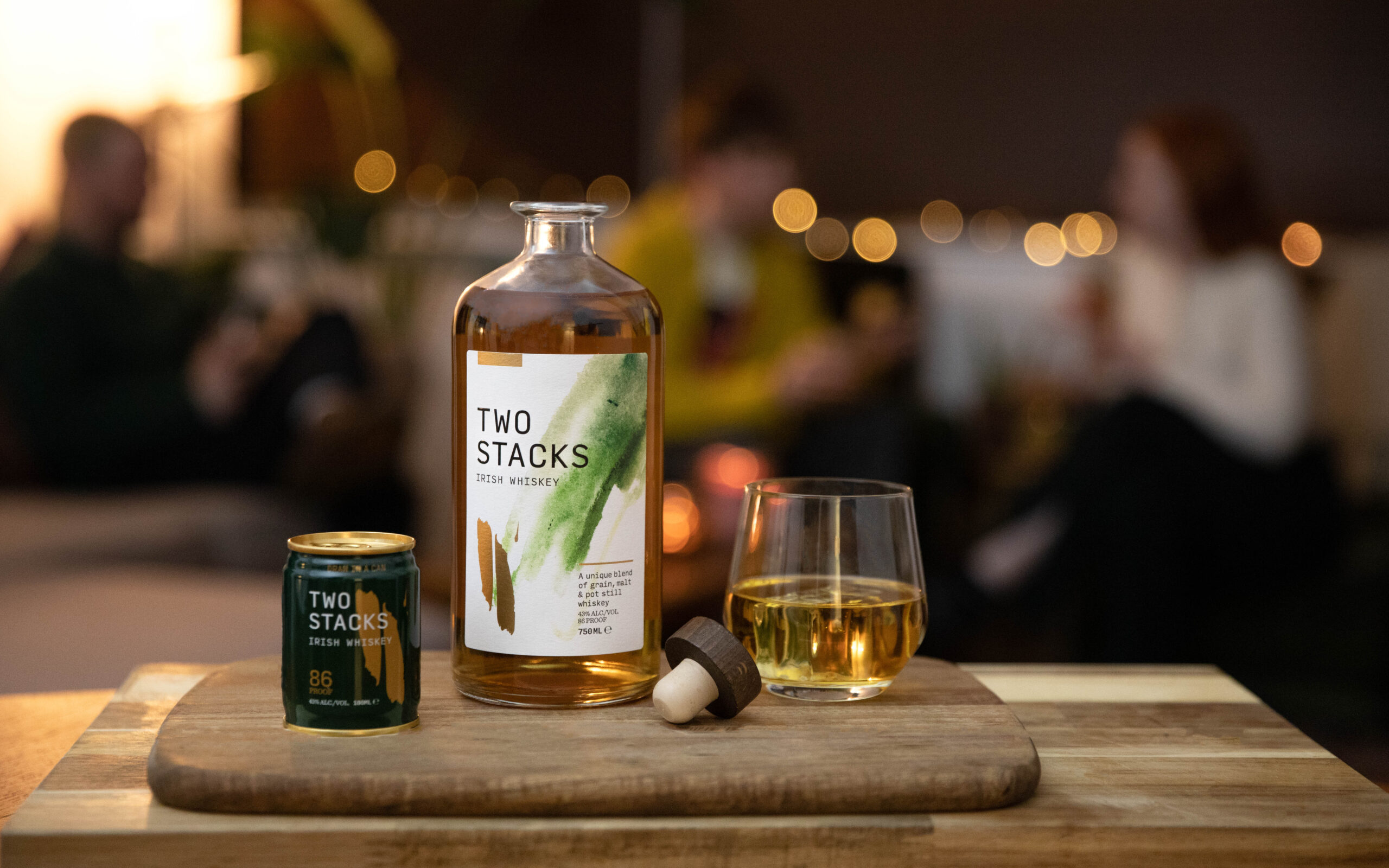
“The word complex is thrown around a lot but as far as we know our First Cut product is the first five-part blend in the Irish market,” says McCarthy. “We took two styles of grain whiskey (40% dark grain, 40% light), we took pot still whiskey (8%), we took double malt (10%) and we took peated malt (2%). To find the balance in that was very difficult. But each element brings its own character.
“I believe that blends can be as interesting if not more interesting that single malts. The pot still adds spice, the double malt adds fruity esters, and the peat is just incredible for rounding and bringing together flavour. There is only 2% peat but without it we wouldn’t have had the reaction we have had. Talking to connoisseurs they are blown away and every time they come back to it they tell us they find something new.”
The ‘big brother’ of First Cut is a 64% cask strength Blender’s Cut, retaining the same five-part blend. It’s the highest proof Irish whiskey on the market today.
“It is 64% because we came to the conclusion that we’d rather the consumer cut it themselves rather than we doing it for them. Having 40% whisky as standard is really a commercial tool. If we water it down we cannot given them back what we’ve lost.”
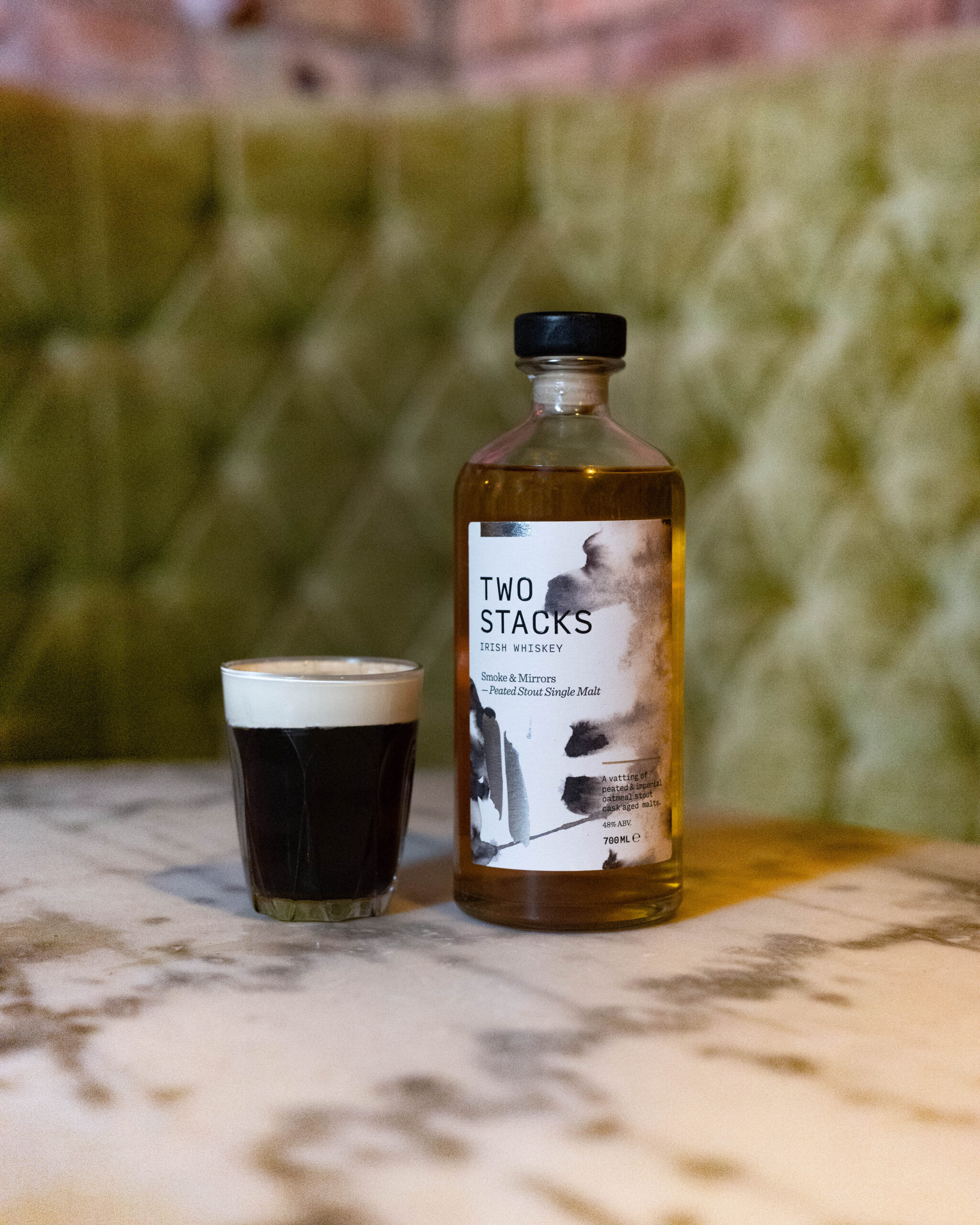
| Passion and purpose The founding partners at Two Stacks don’t have career backgrounds in distilling but that hasn’t stopped them pursuing their passion to build an Irish whiskey business with a difference.Shane McCarthy came from a previous life as a financial analyst and economist, and his childhood friend Liam Brogan is a Chartered Accountant. Donal McLynn grew up working behind the bar at the family-owned pub established by his great grandfather in 1888 in County Sligo. All of them worked in various roles overseas before returning to Ireland to start Ireland Craft Brewing in 2015. “When you have a passion and purpose, you can learn the ‘how’,” says McCarthy. “When I left the world of finance and started up my own business, it’s probably the most challenging thing I’ve ever done. You have sleepless nights just being a problem solver. My previous career helped. I worked in a stressful Wall Street job for a year, and with JP Morgan in Sydney later, and all that was a pathway to where I was supposed to be going. “Liam and I had been in New York a decade ago tasting craft beers and whiskies so we are enthusiasts, not the ones with the distilling certs. Brendan Carty is our head distiller, although he is a chartered architect by trade, he is a talented, creative guy. He upcycled an old farmhouse to build the Killowen distillery. “So finding out how to do this was not the biggest challenge. You can be many things in life, you don’t have to be fixated on just one career. For us it was about following this passion. It’s not a job, you do a 20-hour day as you love what you do. All three of us shared that and we had that early friendship to build on. I know lots of people come out of brewing schools and that can help, but learning by doing is probably the best thing you can do.” |
The company has brought out a range of other expressions with different finishes, leading to its most recent, Smoke and Mirrors, a single malt that was officially released in February. It plans to do more “very interesting things with beer barrels and whisky casks,” says McCarthy, who adds that the potential is “endless”.
Two Stacks wants to set itself apart in other ways, transparency being one. “We come from the craft brewing industry where there are some brands that try to pull the wool over people’s eyes,” says McCarthy. “You have to have trust but how do you achieve that with limited space and labels? You have to do it visually; from the label you should almost be able to taste what’s inside the bottle. We have set a standard by offering full transparency to what’s inside, the breakdown of the blend, the exact percentages and the barrels that we use, where we get the distillate from. That is our mark of transparency.”
With diversity and variety the result of the independent blender and bottler’s work, does Two Stacks place the same emphasis on having a signature blend and taste as other distillers do?
“Consumer tastes have changed a lot,” says McCarthy. “I see a lot of overlap between the craft beer industry and the craft spirits industry. Today drinkers are mindful and want something different. Two Stacks will have a core base that is recognisable, with a peat element to it. But the brand is all about experimentation, with quality coming first, at an accessible price point. People want variety and something non-traditional. Even as a small company we came out with seven expressions last year.”
Northern Ireland: a ‘hidden tiger’
In building their business, the Two Stacks owners are also tapping into the often under-estimated entrepreneurial spirit of people in Northern Ireland.
“I always felt that Northern Ireland was a bit of hidden tiger in Europe,” says McCarthy. “There is so much talent and ability here. Yet not much overseas investment comes here compared to Dublin, just down the road. It has been held back for the last 30 years, no doubt, but there is potential to unleash all that latent ability that has gone unnoticed. We’ve been through The Troubles and we’ve come out as a new generation on the other side. I think there is even a magic energy about the city of Belfast. It’s often forgotten that it was once a great centre of commerce, engineering and creativity in these islands, but the revival is happening now and it’s exciting to be part of it.”
Brexit has had an impact on business but McCarthy says that businesses in Northern Ireland should be taking advantage of their ‘special status’ as part of the UK but retaining access to the EU Single Market. “People function best when they don’t have bureaucracy hampering their ability to trade and create. We want to look to the outside world.”
Role of travel retail
Ireland Craft Beverages and now the Two Stacks brand are reliant on export business. Here, travel retail is set to play a key role in building awareness.
 McCarthy says: “Duty free is probably the most important channel to get the message out about Irish whiskey. The Loop (ARI) does it very well at Dublin Airport. It has a dynamic passenger base and great footfall. For smaller brands, duty free has to be a volume driver that allows the brand to get behind its story-telling.”
McCarthy says: “Duty free is probably the most important channel to get the message out about Irish whiskey. The Loop (ARI) does it very well at Dublin Airport. It has a dynamic passenger base and great footfall. For smaller brands, duty free has to be a volume driver that allows the brand to get behind its story-telling.”
The company is represented in the channel by MTR Consulting’s Martin Mullen – well known to many in the trade for his long career with ARI in the Middle East (see panel). McCarthy says that the conversation is not only about Two Stacks but about other independent brands that are less known in the international market but that have much to offer. “We can be an easy one-stop-shop with a consolidated range of Irish brands that we can supply. It offers variety and retailers and consumers want that.
“We are in five export countries with Two Stacks and Killowen. We want to do export right, give it due care and attention and not just chase a presence in 30 or 40 countries quickly. And for that duty free is key. We want to be in the airports, and with the right partnerships we can make that happen.”
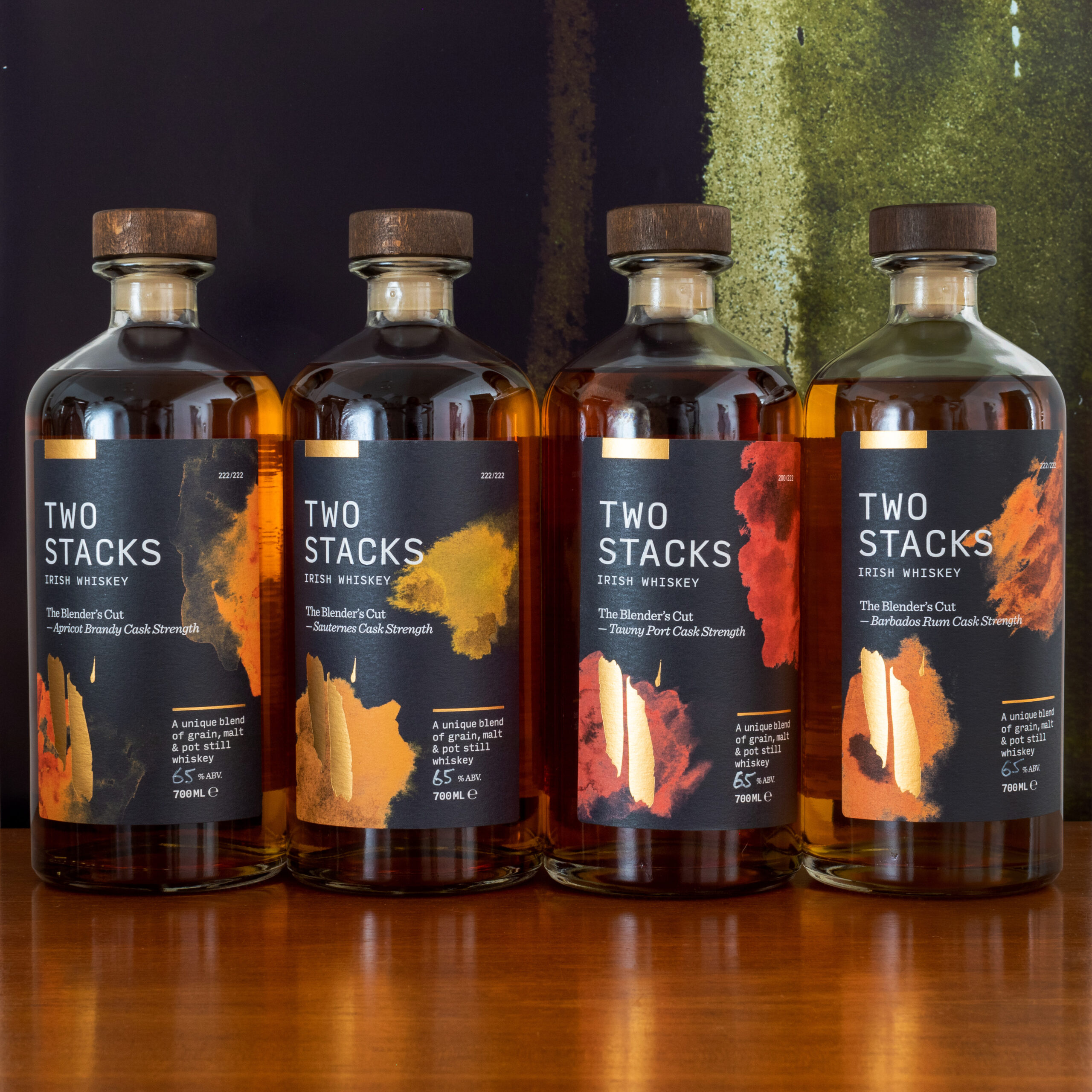
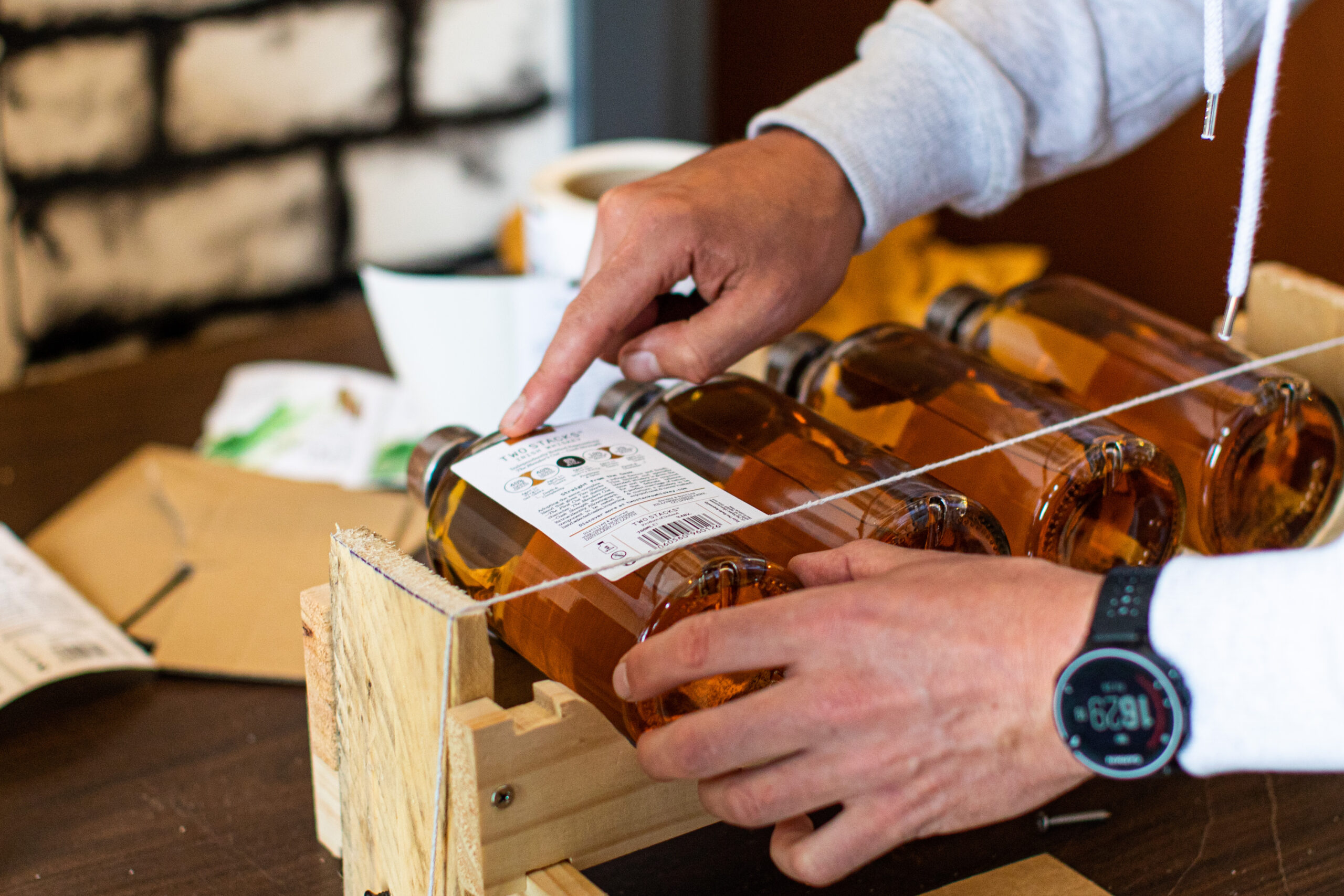
Towards a new world of Irish whiskey
Irish whiskey’s recent rise has seen distilleries shoot up around the country. For many in the industry, the question is whether this level of growth can be sustained, and whether all of the new players can survive and flourish as independents.
Variety and differentiation will be key, says McCarthy. “We hope all of them will survive. Distilling can be a money pit. You may struggle to sell your product because you have not built your brand. But there is a secondary market for blending and bottling that will remain and is growing, so there is an opportunity.
Would the company look at partnering with a larger player to accelerate its own roadmap?
“We came into this on purpose to help independent brewers and distillers so to then sell to a drinks group would probably be seen as sacrilege. We love the challenge of doing things ourselves.
“But beyond all that I would be wary of too much consolidation in the industry at this stage. There is a lot of money out there seeking alternative investment, especially from the US. But the government should be supporting local industry to grow, not attracting foreign investment to buy it up. Follow the flow of money. If you buy a Bushmills that money goes back to Cuervo in Mexico. With Irish Distillers, it’s France and Pernod Ricard. If you really want to support rural Ireland and rural employment, support these new distilleries – that is what grows prosperity throughout Ireland. There can be a great trickle effect if you help rural Ireland and don’t just focus on the few big conglomerates.
“We see the community of distilling coming together. Even here in County Down there is a concentration of distillers all doing different things. Historically Belfast was a heartland for brewing and distilling and it’s emerging once again. Today there is competition but there is a sharing of knowledge too and that pushes people’s abilities.”
Nor does Ireland have all the talent. Any market in a growth phase requires outside expertise to emerge and flourish. For Irish whiskey to be a true global force once more it will require more distillers and coopers, and more management that understands how to build brands on the international stage.
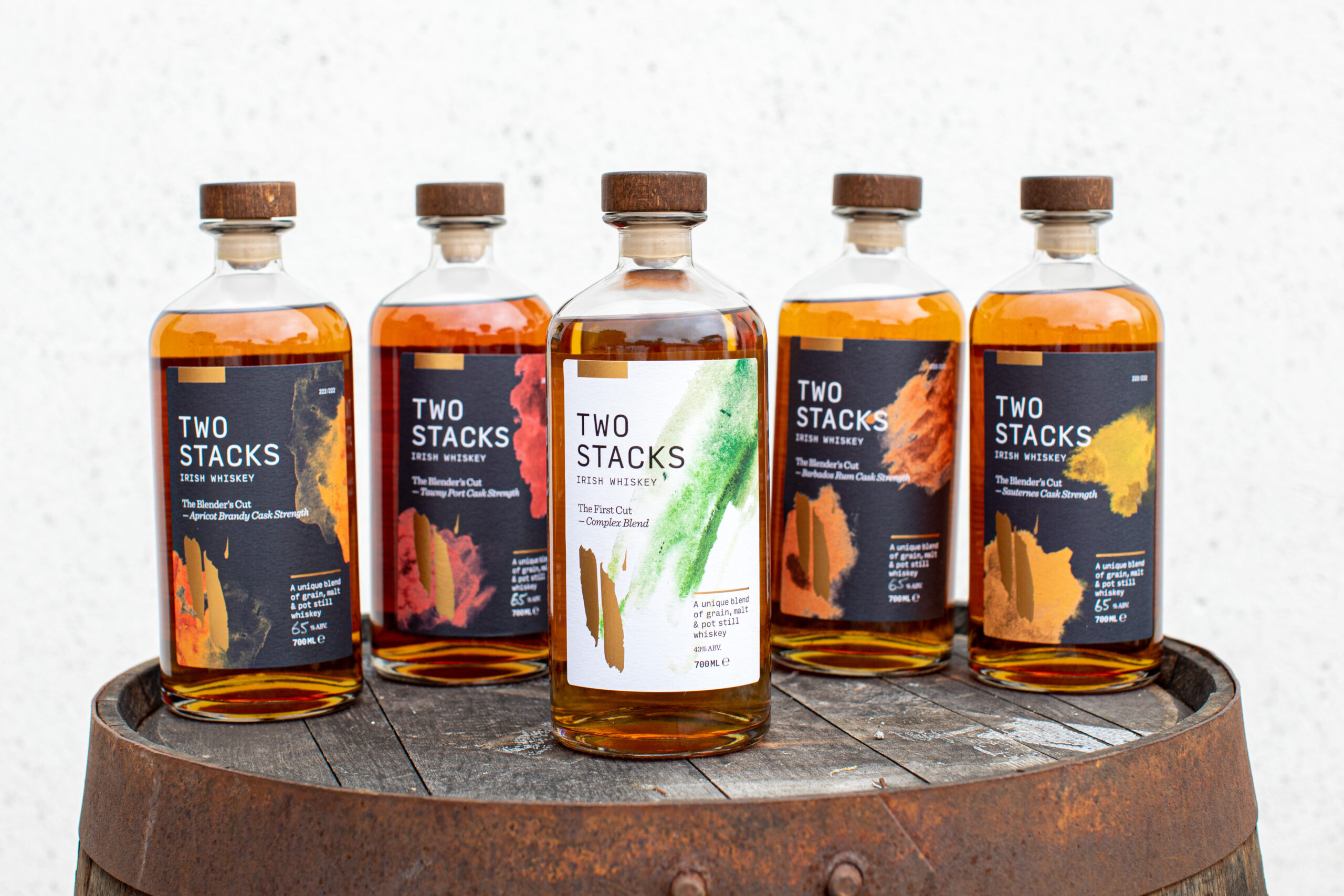
McCarthy says: “You need the experts that help you go beyond being just a start-up. We as an industry need to source talent, and for that talent to stay and pass on knowledge to the next generation.
“We have taken knowledge and inspiration from around the world. Among others we learned from Peter Bignell of Belgrove Distillery in Tasmania, who has inspired many distillers. Tasmania is a centre of creativity and a destination and there’s no reason similar things cannot be achieved in Northern Ireland.
“With all of those influences you may see an Irish whiskey industry of multiple taste profiles emerging too, just as in Scotland. In our history there was a single malt concentration in the north, you had Connemara or Inishowen peated styles, and that all fell away with trade wars, Prohibition and so on. Irish whiskey can be about so much more than it is, even today.
“I am very optimistic. There is youth and there is energy in the Irish whiskey industry. It is not this clichéd, blueprint-driven sector. There is real excitement now, and between ourselves at Two Stacks and Killowen, along with a handful of others, we are bringing points of difference and that is attracting more drinkers to Irish whiskey.”
Getting ahead in travel retail MTR Consulting, led by former ARI senior executive Martin Mullen (right), represents Ireland Craft Beverages (ICB) in travel retail, including Two Stacks and Killowen but also other distillers distributed by ICB. MTR Consulting, led by former ARI senior executive Martin Mullen (right), represents Ireland Craft Beverages (ICB) in travel retail, including Two Stacks and Killowen but also other distillers distributed by ICB.Mullen, who was General Manager at several ARI operations across the Middle East and most recently led the implementation of its duty free project at Abu Dhabi International, set up his own business in Dubai last October. Among its services is representation and distribution of brands in travel retail, domestic and online business. It has helped several beauty and fashion brands grow their online retail presence in the UAE and Saudi Arabia. Mullen says: “We have presented Ireland Craft Beverages to regional and global duty free operators, with a keen response from them all. This is something that we believe will grow once airports start to recover from the pandemic. We are also in talks with distributors for the supply to bars and hotels in the region. Shane and the team have a wonderful product and I am very glad and proud to be working with them on this.” |





